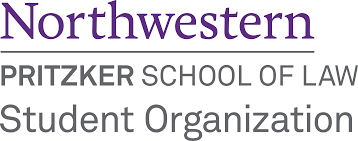Mentorship and Diversity
WLC’s 2020 Symposium Week continued on Thursday with a lunch panel that discussed supporting diversity in the legal field. Our amazing panelists were Christine Evans (Northwestern Law, Center for International Human Rights), attorneys Deanna Clugston (Executive Compensation, Willkie Farr), Deepthika Appuhamy (Litigation, Jenner & Block), Josephine Park (Litigation, Foley & Lardner), and Rachel Yu (Cybersecurity, IP, Sullivan & Cromwell).
We want to thank Madi Sosa, WLC’s Co-Director of Symposium, for moderating the event and DivCo, BLSA, and APALSA for co-sponsoring the event.
The panel covered various topics including from the importance of informal mentorship to firm programming that encourages diversity. The panelists also touched on their own experiences as diverse females in the legal field and how all of us can further support inclusion.
1. How to find a mentor and develop that relationship.
The attorneys on the panel all emphasized the importance of both formal and informal mentors in their own careers. All of the firms represented provide formal mentorship opportunities where junior associates are paired with senior associates when starting at the firm. While the attorneys relied on these formal mentors for varying degrees of support, they all agreed that their closest mentor often grew out of a more informal relationship. The panelists suggested grabbing coffee or lunch with more senior colleagues to find the people that you connect with best. While the panelists’ mentors did not necessarily look like them, they were able to establish common ground and gain valuable insight from more senior leaders. These mentors have supported the women throughout their careers.
For those looking for a formal mentoring program while in law school, Christine suggested the Chicago Bar Association’s program. You can sign-up for a mentor here: CBA Mentoring Program
2. How to make the most of your mentorship.
It is important to remember that a mentor believes in your abilities and wants to help your career progress. The panelists emphasized how their mentors have been instrumental in advocating for work on their behalf or in promotion decisions. Josephine highlighted how it is important to not take this support for granted and to constantly ask for feedback from your mentors so that you can continue to improve throughout your career.
3. How can allies support our colleagues of color and how can men support women in the legal field?
When addressing experiences that she had as a diverse female at law firm, Deepthika said that allies should recognize their privilege and address this privilege by redirecting questions to the minority voices in the room so that they have a chance to be heard. They can also assist by passing on institutional knowledge of the firm that is typically shared amongst a smaller group of lawyers. The team is better able to succeed when everyone has the same baseline knowledge and a chance to contribute. Similarly, in regards to issues impacting women, Rachel said that men should view the issues that women face as “everyone issues.” In order to see real change, everyone will need to come together to support diverse individuals.
4. How are firms encouraging and supporting diversity within the legal profession?
All of the attorney panelists work at firms that are striving to support diversity within the legal profession. For example, Foley’s biggest client mandates that there is diversity on their team, and this encourages a collection of perspectives and ideas. All of the firms have implemented generous paternity leaves for all employees. The firms have also implemented management trainings for both partners and mid-level associates to educate the attorneys on how to be a thoughtful and inclusive leader. It was exciting to hear the concrete steps firms are taking to support diversity in the workplace!
5. What can students and younger associates do now?
A common theme among the panelists was that the tone at the top needs to adapt, so that the effects can trickle down throughout the firm. But, there is still a lot that can be done by the students and younger associates! The panelists explained that students should voice what is important to them in a workplace during networking events and interviews. If going on to work at a firm, junior associates should be proactive in seeking out diverse mentors and opportunity through committees and pro bono work.
The overarching theme that the panelists highlighted was that our voice matters. Whether it was finding a more diverse mentor, attending a specific conference or receiving more guidance as an international associate on a Visa, the panelists asked their firms for the support to do what was important to them and the firms listened. It was truly inspiring to hear how these panelists identified their goals and found the support to meet them.
Post written by: Lisa Holzman, 1L Representative for Professional Development
